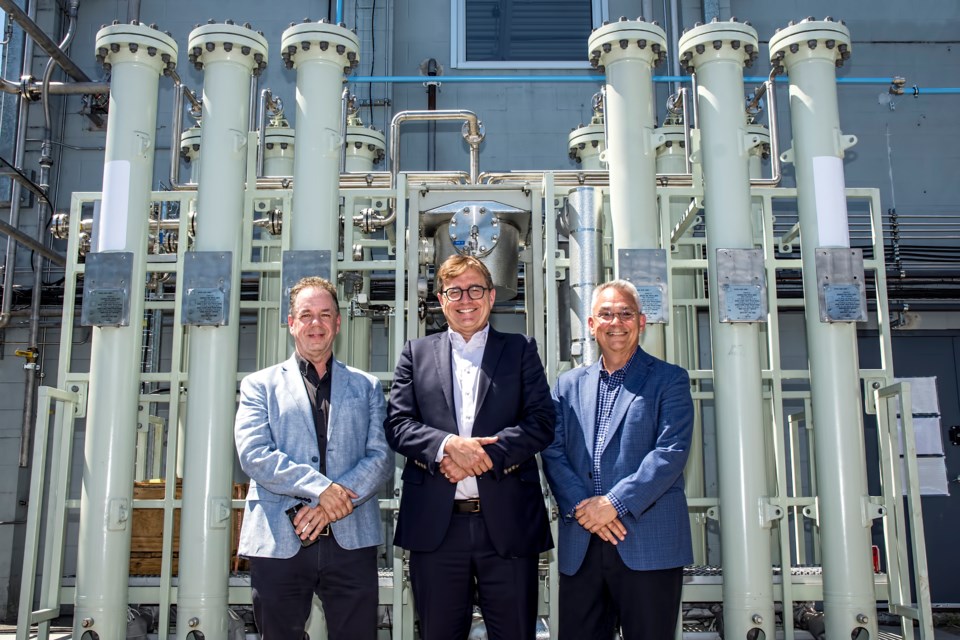Ekona Power, the B.C. company developing turquoise hydrogen production technology, is getting a $1 million boost from the federal government.
The funding, under the federal government’s Clean Fuels and Industrial Fuel Switching program, was announced Tuesday at Ekona’s Burnaby plant, where it has been developing a methane pyrolysis process for making hydrogen and solid carbon from natural gas.
Natural Resources Minister Jonathan Wilkinson said the federal funding is intended to help Ekona scale up their technology.
Hydrogen is considered critical to meeting net zero targets, as it can be a flexible, low or zero-emission fuel that addresses hard-to-abate sectors, such as long-haul trucking.
The two main ways of making low or zero carbon hydrogen is from water and renewable electricity (green), or from natural gas, with carbon capture and sequestration (blue).
Electrolysis is expensive because of the tremendous energy inputs needed. And while CCS is a good option for making emission-abated hydrogen from natural gas, it is limited by geology. CCS requires substantial geological sequestration potential nearby, and that is not available in all regions of the world.
The methane pyrolysis technology that Ekona has been refining also makes hydrogen from natural gas, but it obviates the need for carbon capture and sequestration.
Ekona's xCaliber reactor produces hydrogen and solid carbon, which can be sold for various industrial applications. Hydrogen produced this way has been dubbed "turquoise."
“Essentially, we’re working to deliver low-carbon intensity hydrogen that’s affordable,” Gary Schubak, Ekona’s chief commercial officer, said at last month’s Hy-Fcell Canada conference.
“We have many investors who’ve invested in our company because they see that as a really interesting alternative to CO2 sequestration.”
In 2022, Ekona raised $79 million in a Series A venture capital raise.
Later this year, Ekona will begin building its first demonstration reactor in partnership with Arc Resources (TSX:ARX) at Arc’s Gold Creek natural gas plant. Ekona plans to start construction on the new demonstration plant later this year, with commissioning scheduled for mid-year 2025.
"Ekona is a very interesting company with a very interesting technology because, assuming they can scale it up and make it work cost-effectively -- and they obviously have some work to do to get to that point -- it actually allows you to use the existing natural gas infrastructure in a way that no other hydrogen production technology does," Wilkinson told BIV News.
"You don't have to capture the carbon ,you don't have to sequester the carbon -- it comes out as a solid. So you could, for example, have a pyrolysis and Ekona system in Japan that takes natural gas and actually produces ultra-low carbon hydrogen, which you can't do right now."


